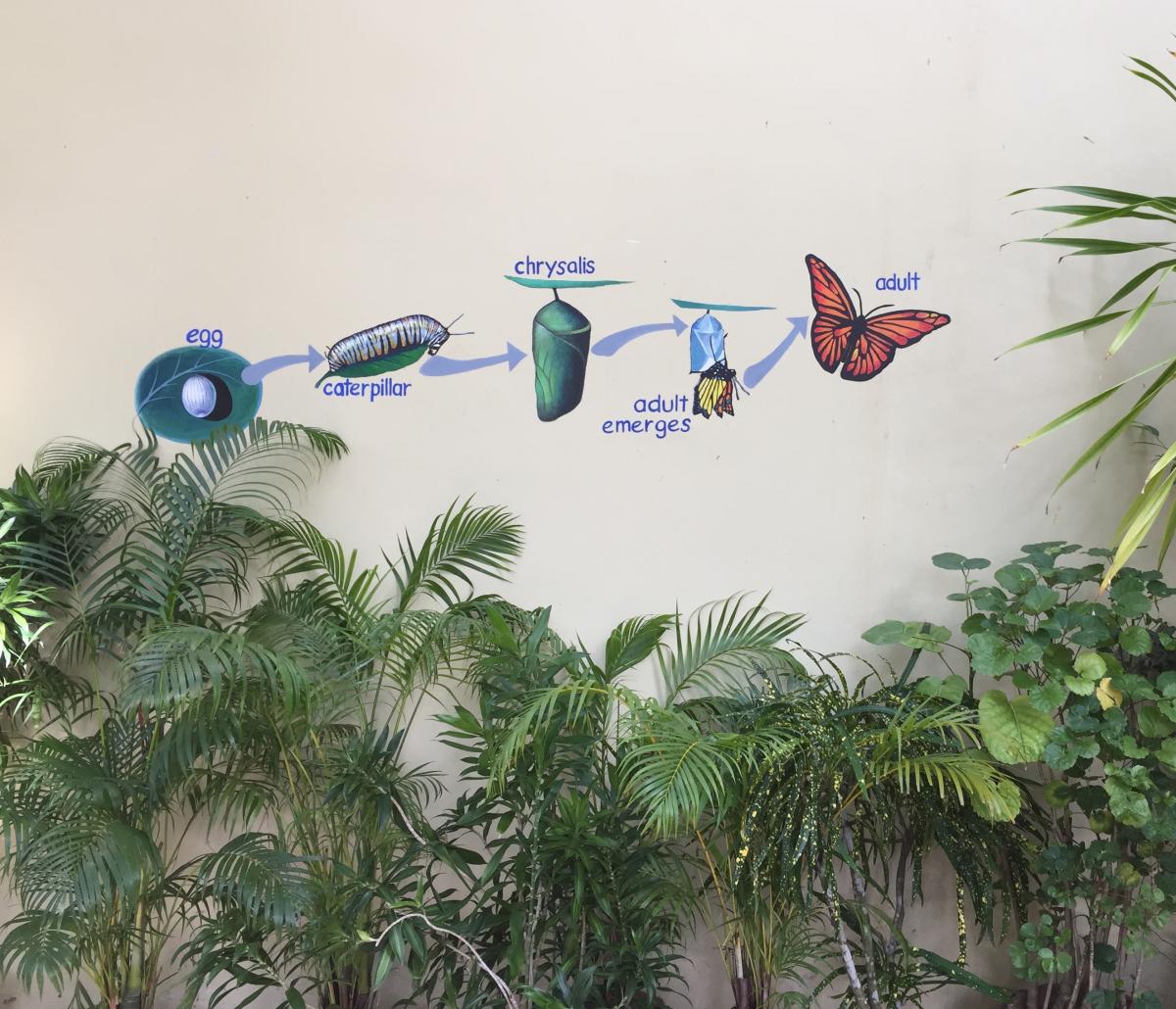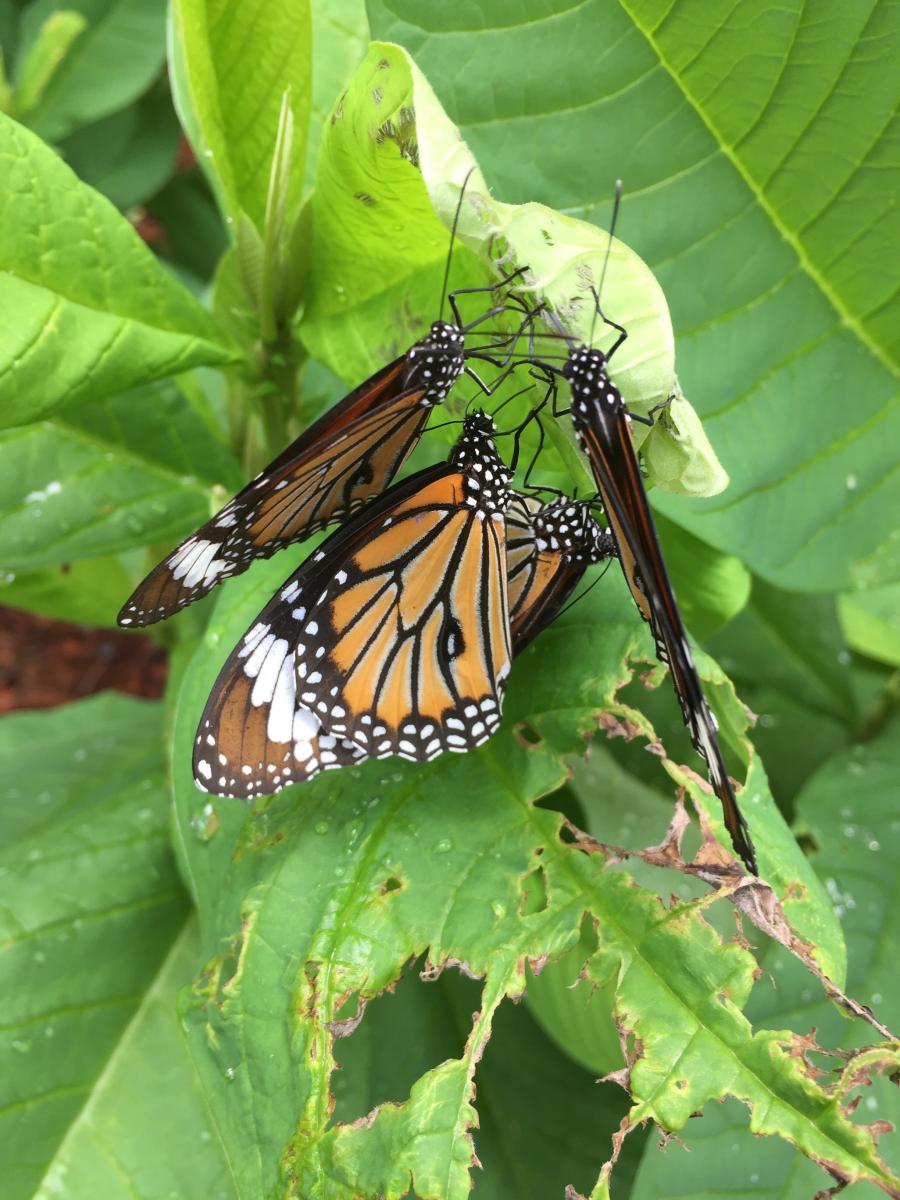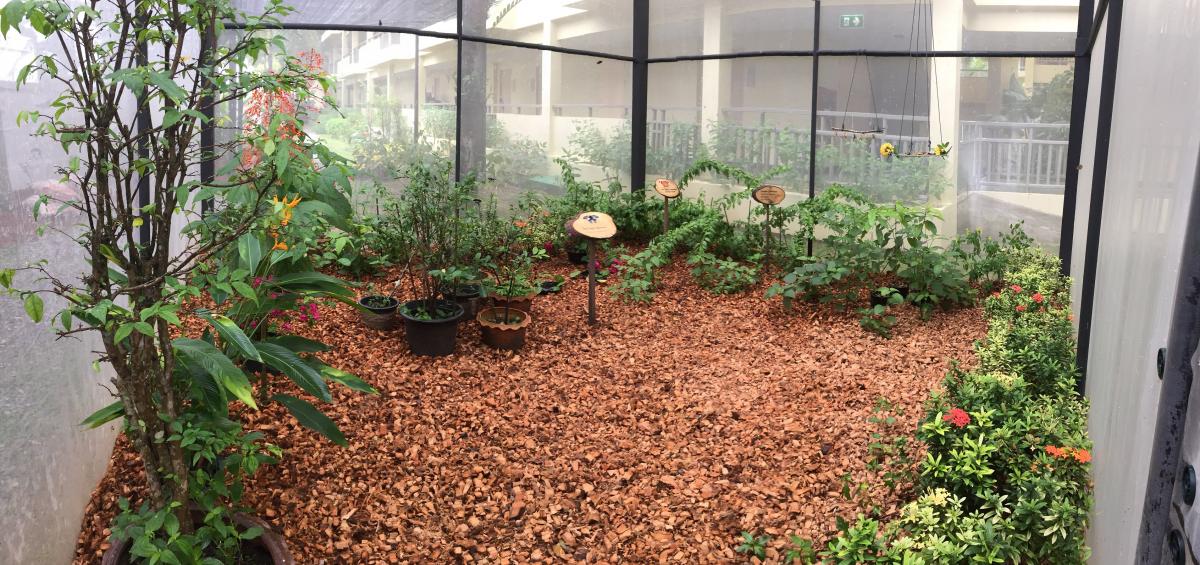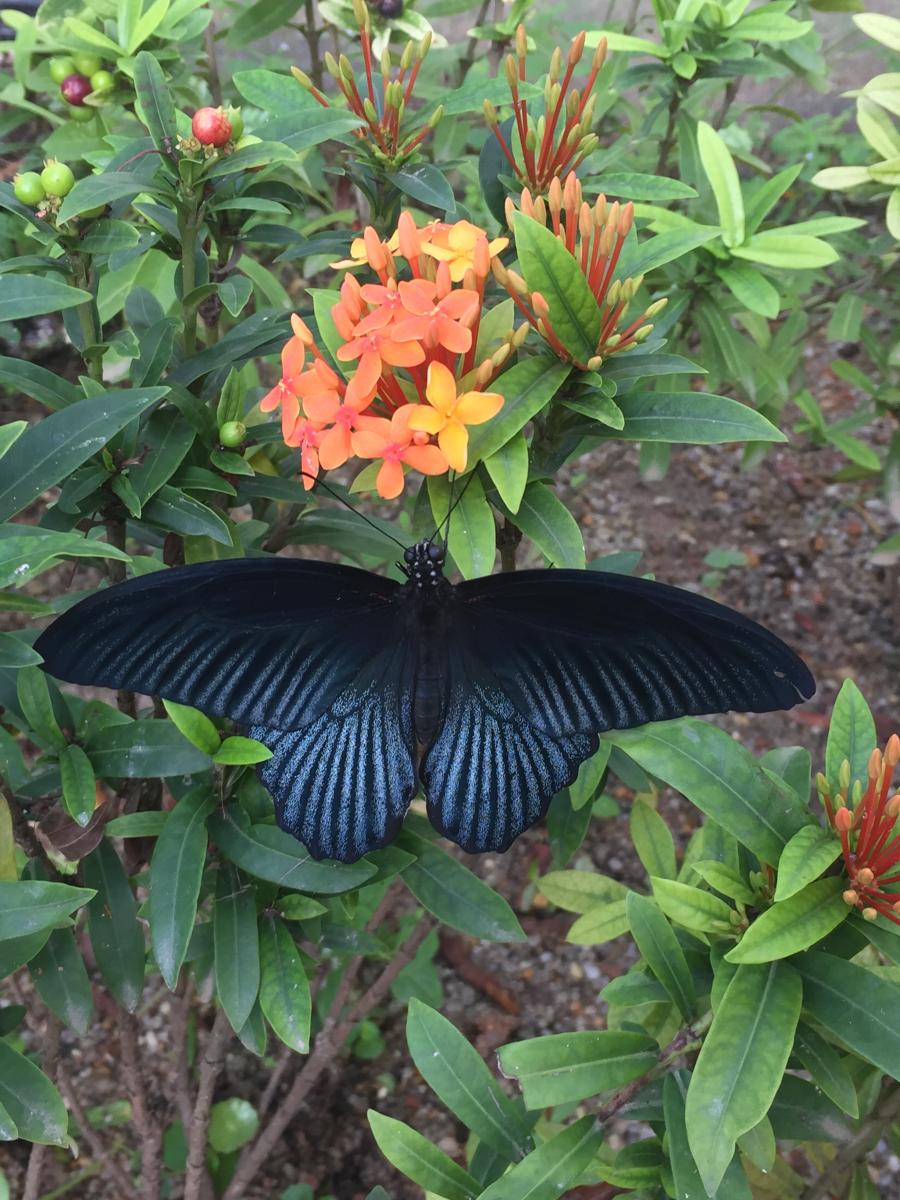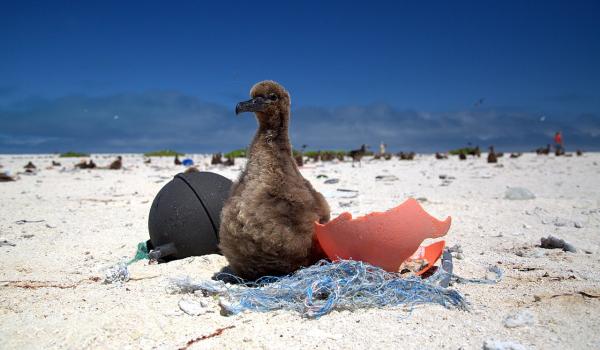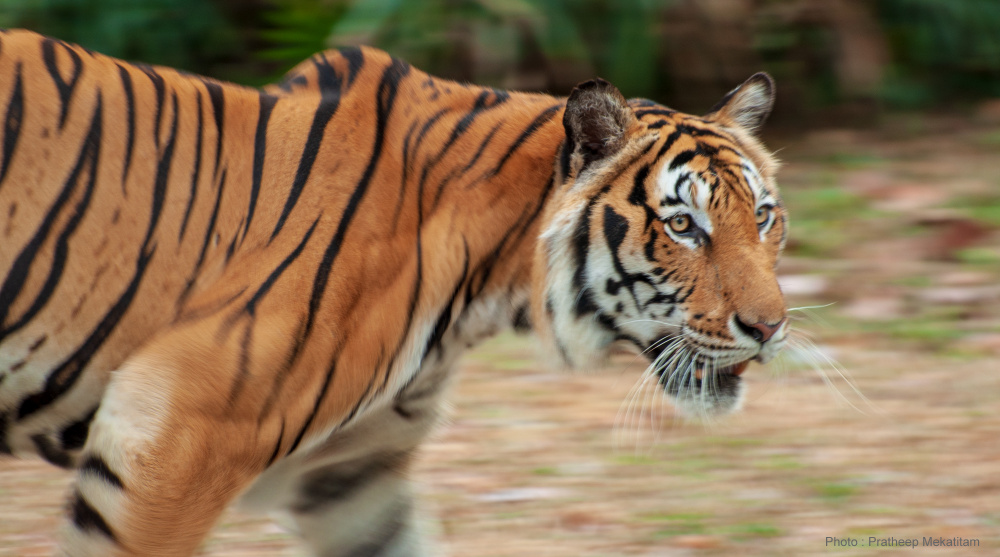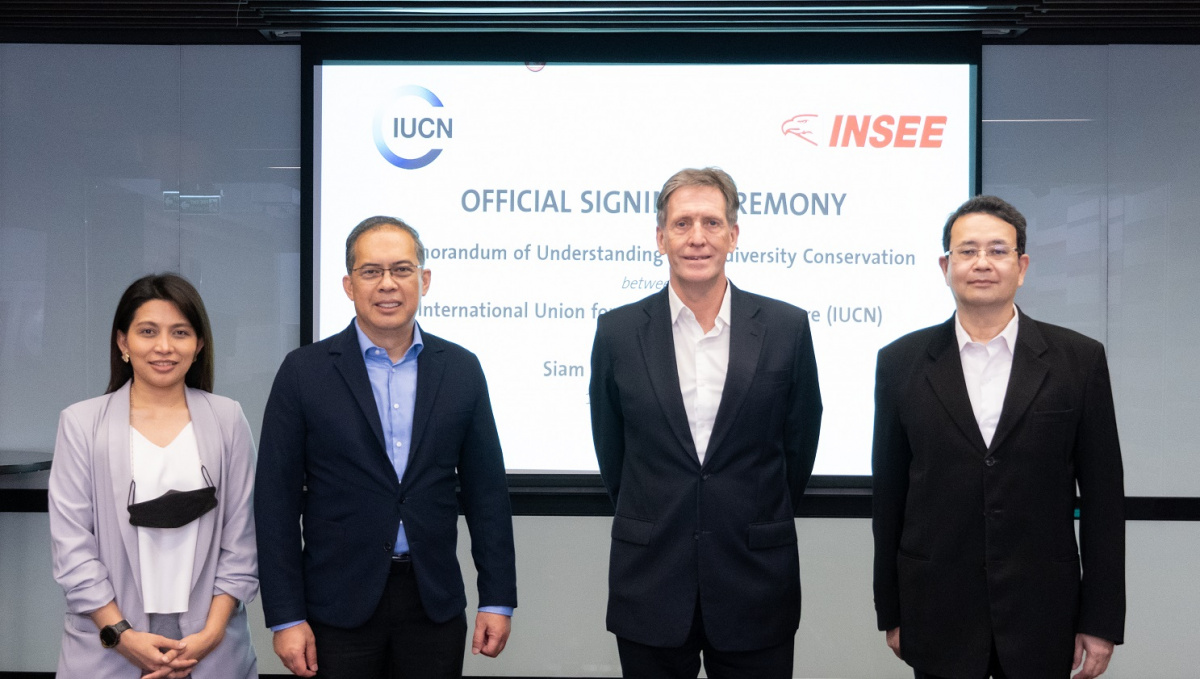Marriott Merlin Butterfly Sanctuary
IUCN, in collaboration with the Phuket Marriott Resort and Spa, Merlin Beach has established a unique conservation-oriented Butterfly Sanctuary on the resort property. Butterflies are essential pollinators for a wide variety of decorative and wild flowering plants, cross-pollinating flowers that are separated by large distances. Overdevelopment and the widespread use of pesticides around the world have led to a decrease in the abundance of these charismatic insects, subsequently having an effect on flowering plants.
The goal of this project is to augment the wild population of native butterflies by providing the host plants needed for developing caterpillars and the flowering nectar plants that the adult butterflies feed on. The resort’s proximity to the nature preserve on the hill will lead to a spillover effect of pollinators from the sanctuary, returning to their native ecosystem. Host plants line the walkway, leading to a special breeding cage for adult butterflies. Since butterflies only live for about a month, it is important to continue the lifecycle by providing a breeding area with the host plants required for egg-laying females.
The hotel is currently breeding two kinds of Swallowtail butterflies: the Great Mormon (Papilio memnon), and the Common Mormon (Papilio polytes), both of which use citrus trees as the host plant for the caterpillars. The hotel is also successfully breeding the Great Eggfly (Hypolimnas bolina), which lays eggs on the Chinese violet, or Creeping foxglove. The presence of Crotalaria plants in our garden recruits male butterflies from the Tiger subfamily (Danainae), which sip pyrrolizidine alkaloids from the plant to produce pheromones to attract females. The sanctuary also plans to begin breeding the endangered Common Punchinello (Zemeros flegyas allica), a native species whose population has decreased in recent years.
Guided tours of the sanctuary are given three days a week, and guests are welcome to explore the area on their own at any time. By engaging guests in learning about the life cycle and the wide diversity of these unique organisms, IUCN and the Marriott hope to foster appreciation of their importance in terrestrial ecosystems.
